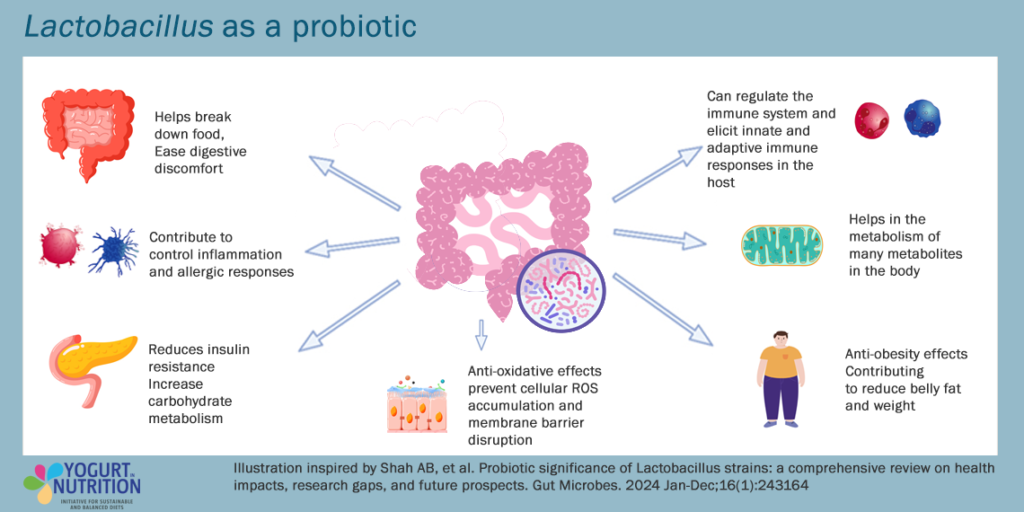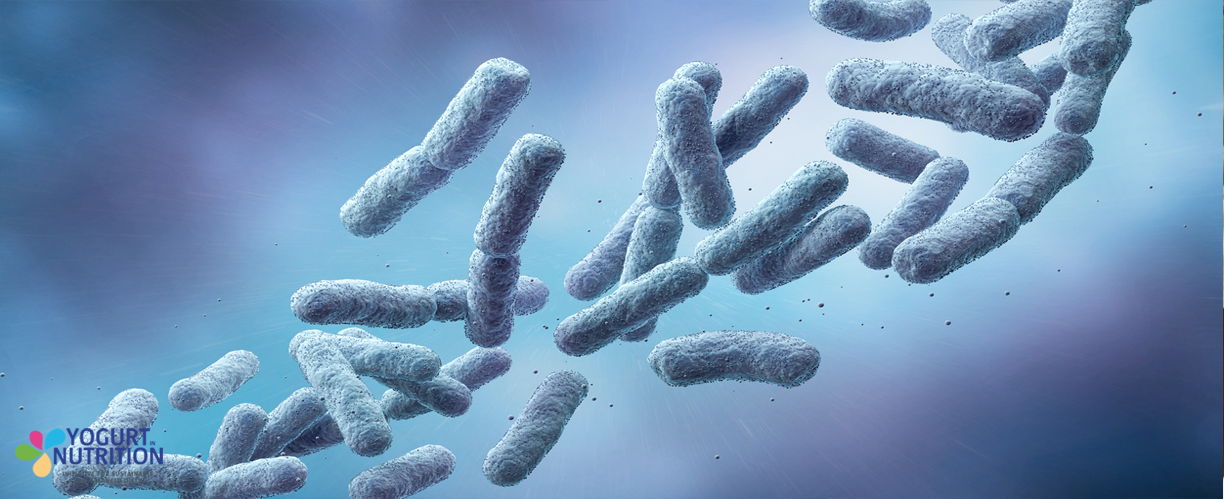A group of probiotics has come under the spotlight as growing evidence points to their role in the gut and human health. The Lactobacillus bacteria make up a large proportion of the microbial population that shelters in our gut, and are associated with several health benefits from fighting infections to controlling obesity.
Strains of Lactobacillus are also used in fermentation, the traditional means of preserving food. Hence yogurt and other fermented dairy foods are some of the most well-known sources of beneficial Lactobacillus strains.
Research reveals the probiotic potential of Lactobacilli
The roles of Lactobacilli bacteria in the gutinclude food digestion, nutritional absorption, infection prevention and gut microbiota homeostasis. Unlocking the secrets of these microorganisms and exploring their probiotic* potential in improving health have been an increasing focus for research over the past 20 years.
An international group of scientists has conducted a comprehensive literature review, bringing together the latest research findings on the beneficial effects of Lactobacilli strains on health(1). Here’s what they found…
Probiotic Lactobacilli bacteria contribute to multiple health benefits
The researchers found mounting data from in vitro, in vivo and clinical studies on the mechanisms and effects of probiotic Lactobacilli bacteria in the prevention and management of several health conditions (2). Through various specific mechanisms, Lactobacilli can participate in modulating the immune system and maintaining gut microbiota balance. They also play roles in food digestion, nutritional absorption, and defense against pathogenic microorganisms.
The Lactobacillus probiotics have a wide variety of impacts on the human body, which contribute to some of the health benefits they offer.

These health benefits include:
- Digestive health: Lactobacilli bacteria help break down food and ease digestive discomfort. They are involved in the metabolic processes that turn carbohydrates into lactic acid.
- Immune support: Lactobacilli can help regulate the immune system and mount immune responses to fight pathogens. They also contribute to control inflammation and allergic responses.
- Metabolic health: Lactobacilli help in the metabolism of many substances in the body. In particular, they can increase carbohydrate metabolism and reduce insulin resistance. They may also have anti-obesity effects, reducing belly fat and weight.
- Other effects: Lactobacilli have antioxidant effects, preventing oxidative stress and the breakdown of membrane barriers. These effects help to protect cells from damage, which may reduce the risk of many diseases, including heart disease, cancer, and diabetes.
Individual specific Lactobacillus strains have different health benefits
Studies show that individual Lactobacillus strains have different properties. The researchers focused on the effects of several key probiotic strains from several Lactobacilli species, including L. plantarum, L. paracasei, L. acidophilus, L. casei, and L. rhamnosus, each offering unique health benefits (3):
- L. plantarum: used in the fermentation of cheese and Kefir, pickled vegetables, fermented meat products, and a variety of drinks. Clinical trials show that it can enhance immunity by regulating pro-inflammatory and anti-inflammatory cytokines. It may also influence the composition of human gut microbiota, potentially resulting in reduced obesity (4).
- L. paracasei : A lactic acid bacteria used in the fermentation of some dairy products and found in the mouth and gut. It has potential probiotic properties in the gut, protecting against infection-causing bacteria. It has also been shown to reduce the symptoms of hay fever in clinical trials (5).
- L. acidophilus: Primarily found in the mouth and gut as well as a wide range of fermented foods. Shown to provide a variety of potential benefits in humans, including decreasing cholesterol, promoting immunological response, assisting in lactose digestion, and contributing as a barrier against infections (6).
- L. casei: Frequently used in the fermentation of some fermented milks. Shown to prevent infections caused by Clostridium difficile and antibiotic-associated diarrhoea and to fix imbalances in the gut’s microbiota. Can also contribute to slow down the development of chronic kidney disease (7).
- L. rhamnosus: Proven to be effective in treating and preventing various types of diarrhoea, including that caused by rotavirus or linked to antibiotic use. Also shown to block T cell-mediated inflammation, improving the efficacy of rheumatoid arthritis treatment (8).
Other probiotic Lactobacillus strains may have roles in the prevention or treatment of various other health conditions. For example, L. crispatus has been shown to contribute in the prevention of urinary tract infections, L. gasseri may help control bile acid metabolism, L. reuteri may help protect against intestinal infections and tooth decay, while L. bulgaricus may help reduce colitis-associated cancer by regulating intestinal inflammation.
Research gaps and future opportunities
Despite these promising findings, the researchers stress the need for more research. Many studies focus on animal models or small trials in people, leaving gaps in our understanding of how probiotics interact with complex human systems. Questions remain about the best dosage, delivery methods, and long-term safety of using Lactobacillus probiotics for specific conditions.
The authors call for an expert consensus to develop nutritional recommendations for the use of probiotic food products. Additionally, they highlight the need for innovation in probiotic formulations to ensure these beneficial bacteria can survive the effects of food processing and storage, as well as the journey through the digestive tract and deliver their full benefits.
“A rising corpus of research has shown the beneficial effects of probiotic Lactobacilli on human health, contributing to the growing popularity of these microorganisms in recent decades.”
* The FAO and WHO provide recommendations for evaluating probiotics and enabling the verification of health claims. These recommendations require identification and characterization of the strain, human study validation of health benefits, content for the duration of shelf life and truthful, non-misleading labelling of efficacy claims.



